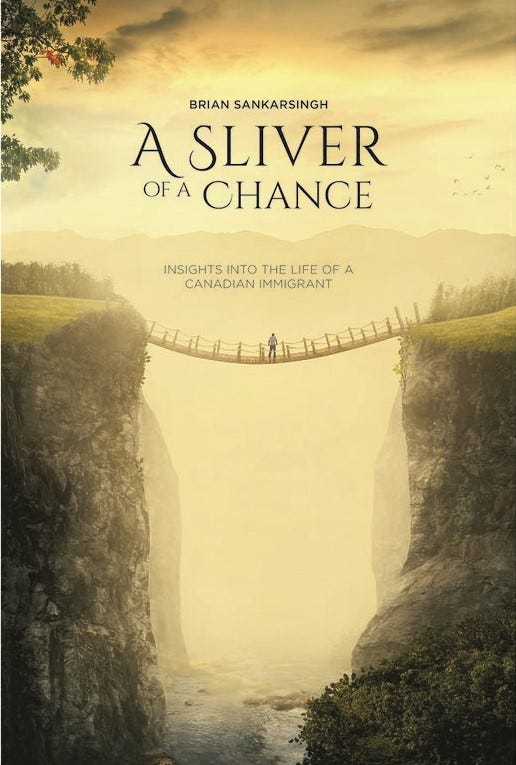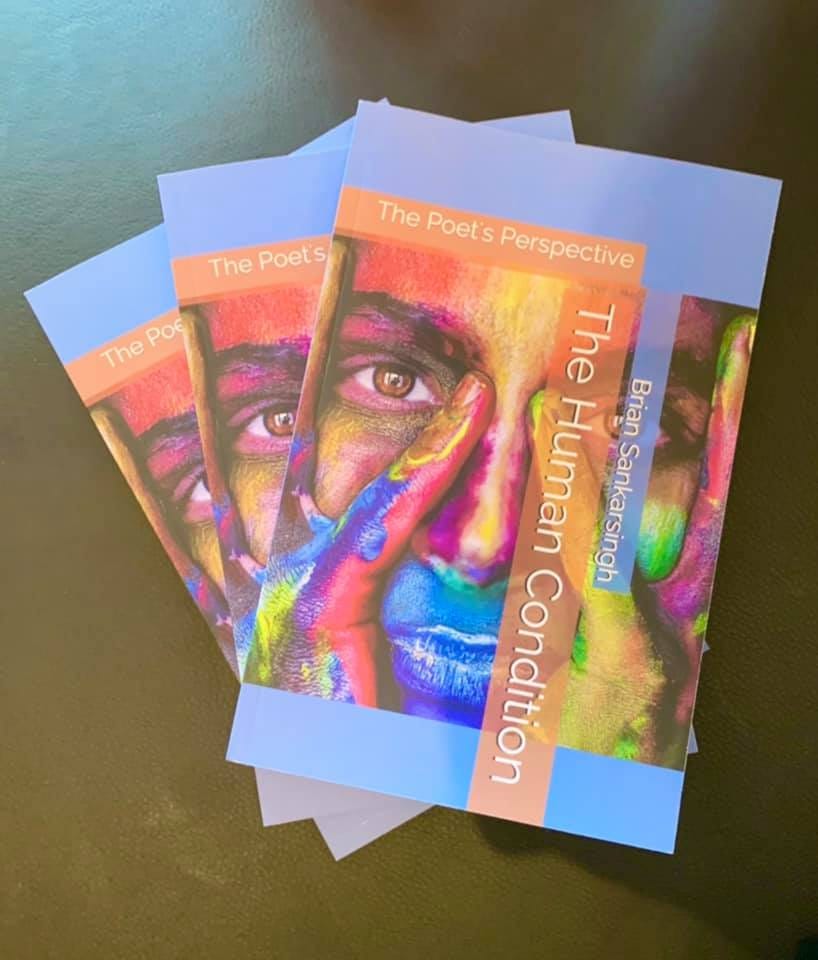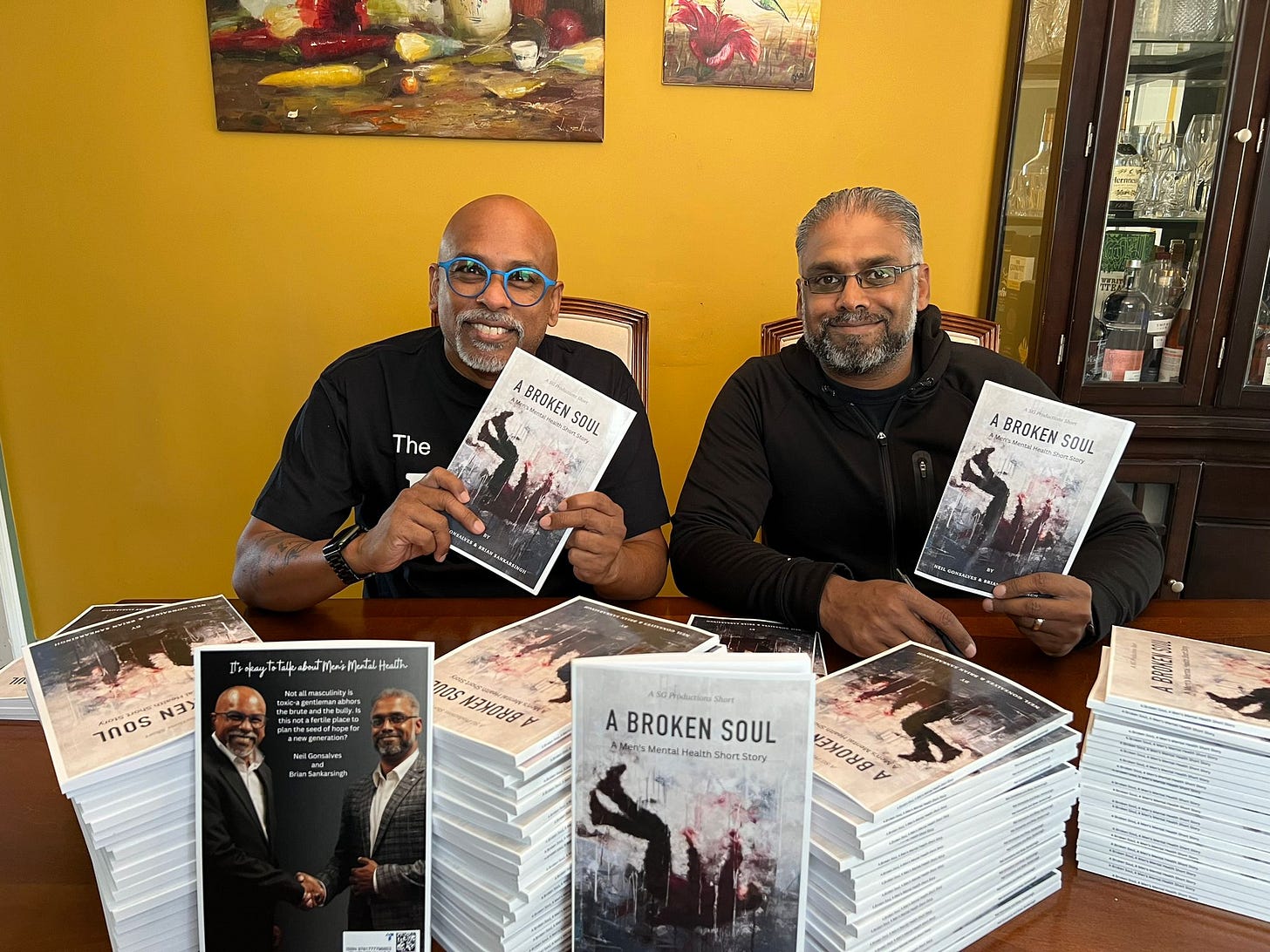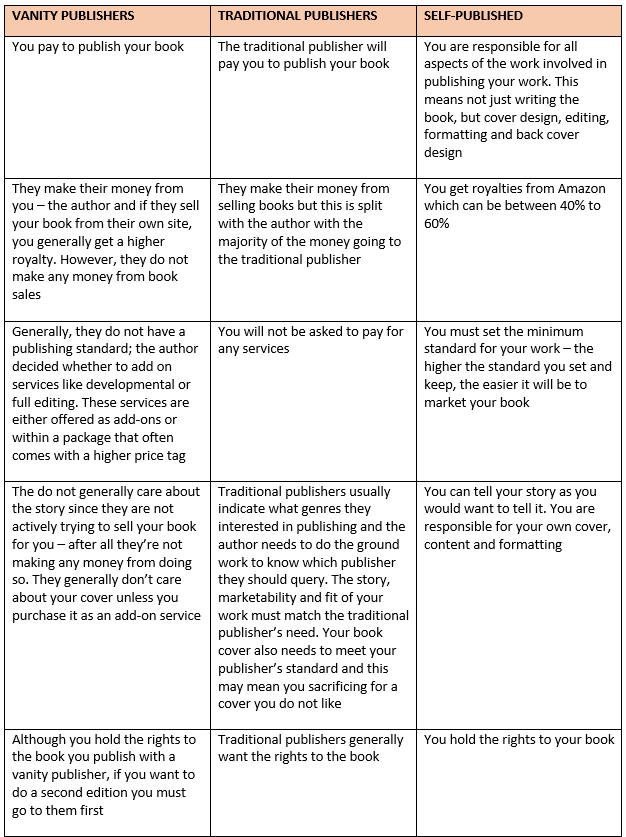The Case for Self-Publishing
Brian Sankarsingh talks about why you should consider self-publishing your next book
Publishing giant Amazon changed the game when they offered authors a way to publish their own books. Gone are the days when authors spend years writing a book and more years trying to find a publisher only to be rejected hundreds of times and then give up. The world loses that person’s voice and their story. Now an author has several options when bringing a book to market. To illustrate this, I’d like to tell you, my story.
I was encouraged to write my first book in 2020, when I was 55 years old. I’d written poetry all my life but never thought that anyone would ever want to read anything I wrote – except for my loved ones. But they were the ones who emboldened me to put my poetry in a book. I am an advanced Microsoft Office user, having used the entire suite of products all my working life, so I immediately started cataloguing my existing poetry. I also began working on new poems with a burst of creativity I’d only experienced as a teenager. In less than four months, I amassed a book of 130 pages of poetry.
Now what?
Even though I had a MS Word file in front of me that looked very much like a book, I still did not feel that this was going to be something people would want to read. I began to question myself. What type of pipedream was I selling myself? Still, my family continued to push me onward, even as my heels sunk into the sand of despair.
I was no author. I was no poet.
I decided not to even try an approach a traditional publisher. After all, I reasoned, they would look at my drivel and most surely laugh at me while sending it to the digital shredder. Instead, I decided to self-publish. I reasoned that I would not have to risk my ego being destroyed if I were paying the bill. So, I began looking for a Canadian organization that I could pay to publish my book. After comparing many organizations and their services, I decided on one. The folks were extremely supportive. They had a good project plan, something that I appreciated, and I had an incredibly supportive account manager. This person was very insightful and asked me one of the most important questions I’ve ever been asked in my budding writing career. “Why are you writing this book?” I reflected on that for a few weeks before coming back with an answer I felt reflected my true intent. I did not want to write this book to become famous; I did not believe that it would make me rich; I wanted to write this because I wanted to share it with the world. I would not care if only one person read it. I wanted – and needed – to share it.
We went through the entire process and by the end of 2020 my book, A Sliver of a Chance, Insights and Observations of a Canadian Immigrant was published.
I now had a published book with my name on it in my hand. I had several pictures with me holding that book, but I still did not feel like a poet. I was still not an author.
However, the experience for me had been euphoric. I wanted to do it again, but this time I was intent on doing it myself. It helped when someone told me that a family member was so encouraged by reading some of my poetry after they had gone through a terrible experience. I was sure that at least one person had been encouraged by my work and I wanted to do more.
During my time spent marketing and selling my book, I discovered Amazon KDP (Kindle Direct Publishing). I spent hours of research on how I could use this amazing tool to publish my own work. At the end of 2022, I hit Publish Now on my second book, The Human Condition, A Poet’s Perspective.
During this time, I also contributed to two anthologies and was a regular contributor to several online magazines and my local community newspaper. Ever so slowly, something began shifting in my mind. I was in the middle of writing, what I believe is my seminal work – a four book series on enslavement and I was beginning to call myself “poet.”
I also collaborated with
co-authoring an amazing book about men’s mental health - from the immigrant perspective.With this new-found confidence, I decided to query several traditional publishers about this new book, which was titled Enslaved, A Chronicle of Resistance. I queried forty-three publishers in an 8-month period while writing this book. I received three rejections letters of support, encouragement and thanks and dead silence from the rest. This was enough to help me decide to – once again – go the self-publishing route.
On the 24th January, 2024, I published and officially launched my four-book series:
Enslaved, A Chronicle of Resistance
Book 1 – The Lamentation of the Enslaved
Book 2 – Freedom Bells are Ringing
Book 3 – Hidden in Plain Sight
Book 4 – A Companion Reader
By now, my email signature was Poet | Author | Storyteller and the tattoo on my right arm was “the Poet” and with an anthology coming out in April 2024 and a book on titled Decolonizing the Trinidadian Mind coming in February 2025 my own confidence was growing. All of this was made possible by Amazon KDP.
Writing a book is only half the work. It is – undoubtedly – a significant amount of work, but it is only a part of the process. The interior must be formatted; you need to decide what categories the book content falls under; what type of page (white or cream); the book size; its cover; the back content; your dedications; a foreword; your bio. The list is endless, but the work is made so much easier with Amazon KDP.
All of this got me thinking about how the different routes a writer might take would compare to each other.
For those of you who continued reading, here is a final thought on Imposter syndrome.
Impostor syndrome is a psychological occurrence in which people doubt their skills, talents, or accomplishments and have a persistent internalized fear of being exposed as frauds despite evidence of their competence. Impostor phenomenon is studied as a reaction to particular stimuli and events. It is an experience that a person has, not a mental disorder.
I have found that an inordinate number of authors suffer from this syndrome; they put on a good act, but if they ever let their guard down, this tends to be an underlying fear. When it comes to my writing, I deal with impostor syndrome regularly. It often feels like the darkness that surrounds the fire of my creativity; threatening to shroud and eventually devour it. Thankfully, it does not paralyze me, but I often feel it lurking at the edge of my vision, following, and waiting. To keep it away, I continue to write, ideate, and develop new ways of telling compelling stories through my eclectic mix of prose and poetry. It is only by feeding the fire of my creativity that I keep it at bay.
Good luck to you if you are considering writing – whether it be professionally or as a form or therapy, may your pen never run dry and your ideas rain like the monsoon.
Bio: BRIAN SANKARSINGH is a Trinidadian-born Canadian immigrant who has published several books of poetry on a wide range of social and historical themes including racism, colonialism, and enslavement. Sankarsingh artfully blends prose and poetry into his storytelling creating an eclectic mix with both genres. This unique approach is sure to provide something for everyone.










"For those of you who continued reading..." How could I possibly NOT continue reading? Not only was I still reading, I had actually leaned forward because I was so engrossed. What a thoroughly enjoyable and inspiring article with so much to take away well beyond publishing (although the information on publishing was very well-presented and extremely helpful.)